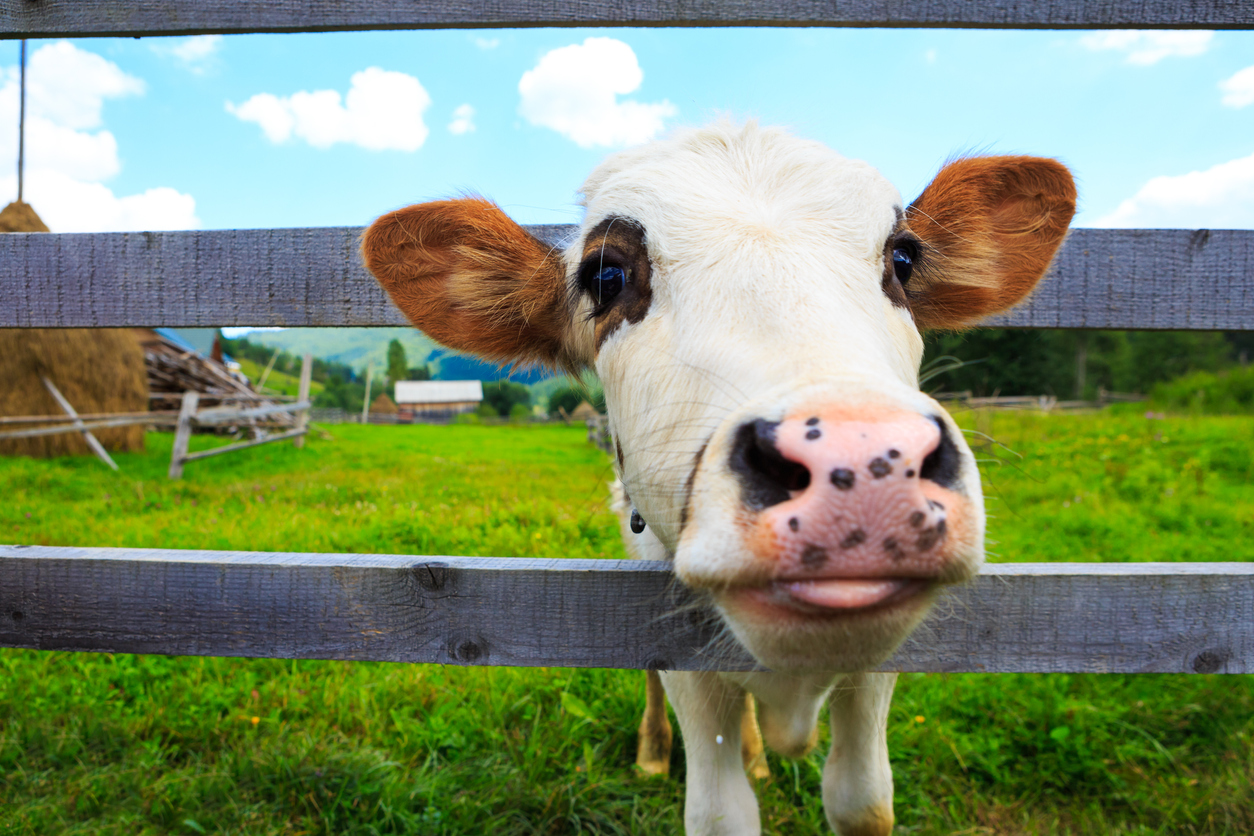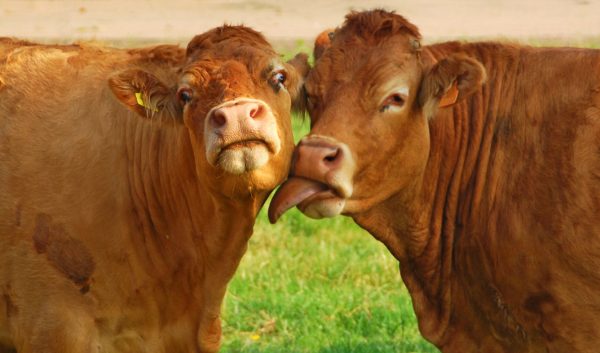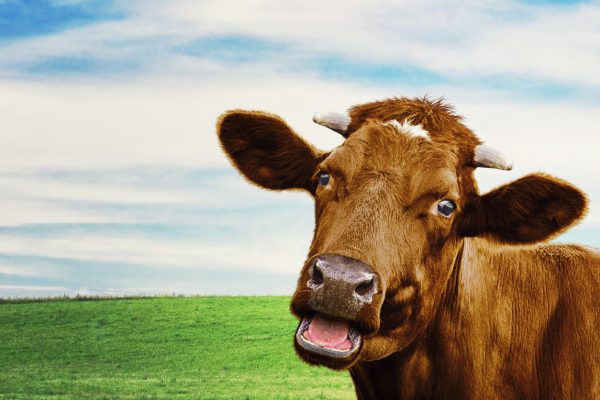Study Finds Cows Talk to Each About How They Are Feeling

Green studied more than 300 cow conversations and recorded each one, and told news website the independent news that all cows have a “voice” that is distinct and unique.
Anyone trying to give up eating meat only has to watch the live action movie “Babe” a couple of times and meat will be the last thing on your mind during any meal for at least a few weeks.
But anyone considering giving up red meat permanently for any reason — health, the environment, weight loss — should check out the study done recently by Australian academic Alexandra Green.
Her work is enough to convince even the most ardent carnivore that maybe, just maybe, cows are deserving of consideration and perhaps even longer lives. Or maybe they deserve to live out natural lifespans grazing in meadows and strolling in fields.
That may sound extreme, but Green’s work has revealed much about how cows communicate with one another; how they express anxiety, sadness and even arousal. Her landmark findings have just been published in the scholarly journal Scientific Reports.

Furthermore, those voices don’t change throughout the animal’s life, as each one uses it to find others in a herd — a calf and its mother, for example — and express different emotions.
And they understand, in a sense, when humans speak harshly or kindly, because they infer meaning from tone of voice, and other inflections.
Green hopes that her findings will have a profound impact on how cows are treated by farmers, ranchers and others involved in the cattle industry.
“Cows are gregarious, social animals,” she explained to the independent recently. “In one sense, it isn’t surprising that they assert their individual identity throughout their life. (But) this is the first time we have been able to analyze (their) voice to have conclusive evidence of that trait.”
Until now, most folks have assumed that one moo is like any other, but Green’s study demonstrates that isn’t the case.
Her colleague, Cameron Clark, was astounded by her findings, saying to the independent, “Ali’s work is truly inspired,” he enthused. “It’s like she’s building a Google Translate for cows.”
Once farmers understand that cows talk with one another much like people do, Green says she hopes it inspires them to take better care of their cows. She said she hopes her study helps farmers “tune into the emotional state of their cattle, improving animal welfare.”
This is not the first time animal communication styles have been studied by researchers, of course, but it is the first time cow vocalizations have been so closely examined, and the results are astounding.
Other animals have long been known to communicate with one another, including gorillas, birds and certain marine mammals, like dolphins and whales.

Whales actually “sing” to one another in the sea, and their voices carry for miles to help them locate each another, or transmit messages of distress or pain.
A 2018 study, the findings of which were published in the independent, found that virtually every animal in the kingdom — from elephants to rats — communicate to one degree or another. Some talk in rudimentary ways, while others are wholly sophisticated and even mellifluous.
Whether Green’s study has an impact on animal welfare remains to be seen; no doubt some will suggest she is anthropomorphizing creatures that exist solely to provide food to countries around the globe.
Others, however, may hail her work as new, scientific evidence that animals need to be respected and well cared for, even if their fate as food doesn’t change.
Another Article From Us: They Are Back – Pigs in Siberia Raid Cognac Supply at Local Store
It is a debate that’s been going on for decades, and will continue no matter how much evidence scientists bring forward on either side.
